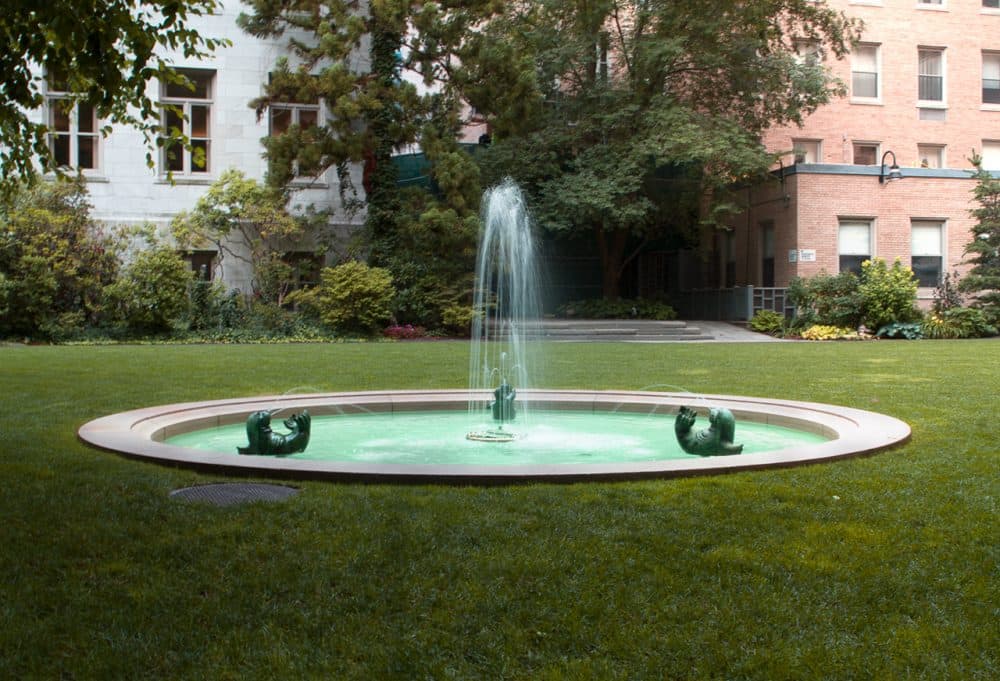Advertisement
Outpouring On Beloved Prouty Garden Continues: Traumatized Kids Need It

News this week that the Prouty Garden at Boston Children's Hospital can be bulldozed continues to draw impassioned pleas to reconsider the garden's fate. Here, Dr. Elliott B. Martin, Jr., a psychiatrist at Newton-Wellesley Hospital and Assistant Clinical Professor of Psychiatry Tufts University School of Medicine, adds his thoughts. (This is the second powerful letter we've received from defenders of the garden. We also welcome letters from the other side.)
I am writing in hopes of continuing the narrative around the fate of the Prouty Garden at Boston Children’s Hospital. I have been involved now for several months in the effort to save the therapeutic space, and the letter yesterday from Ms. Ellen Gilliam has inspired me to build upon her story, in hopes that others will add their own chapters.
I, too, have worked at Boston Children’s Hospital, as a physician, specifically as a psychiatrist. Until recently, the best kept secret at Children’s Hospital had been that there is in fact an inpatient psychiatric unit there. At any given time the hospital cares for some of the most grievously traumatized children you can imagine. These are kids, ranging from seven to seventeen years old, who have suffered ungodly physical and sexual abuse, at times since infancy. These are kids who have suffered from neglect, at times to near death. These are kids with profound depression, who have tried to commit suicide, very often many times over.
Therapeutic options in such cases are extremely limited, often amounting to time, containment, support, and most importantly, love. Many, if not most, of the physically ill children at the hospital at the very least know the love of their families. For the psychically wounded there is precious little love. As we would often observe on the inpatient unit, very few people sent get well cards to the psychically ill. The clowns never came there. The celebrities, on their visits to sick children, were carefully shuttled past the double-locked doors designed to be disinviting.
In this environment two therapeutic modalities stood out as having had immediately tangible, positive effects on these children. The first was the weekly visit from the therapy dog, and the second were the daily supervised excursions to the Prouty Garden. For kids otherwise confined day and night to a tiny, cordoned off piece of hospital property these fifteen to thirty minute trips were their only connection to the greater world, the ‘world outside’, as one horrifically abused seven year old boy once described it to me. To see these kids playing in the garden one might even mistake them for “normal’ kids. To see them interact with children in wheelchairs, with children wheeling IV poles, with children sentenced to die and whose parents had nowhere else to cry, one might think they were even more than normal, that they were, at least for a few minutes, special.
When given the opportunity, no one is more accepting, more compassionate, more empathic than a traumatized kid. There are countless stories of the therapeutic miracles of Prouty Garden among physically ill children and their parents. But the Garden has also helped, and continues to help, those kids without a voice, those kids who, without the Garden, will have lost all connection to the outside world. On behalf of the kids who will never have a walk or a marathon or a drive dedicated to their benefit, please allow them at least their fifteen minutes of daily humanity. Bulldozing the garden will directly affect the care and well-being of these children. I cannot imagine Ms. Prouty, a woman who struggled with her own mental health issues as a child, would have wanted this any other way.